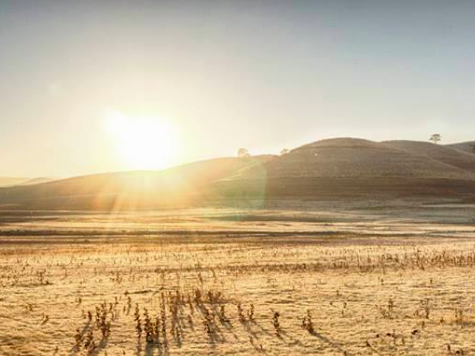President Barack Obama offered the desperate farmers and farmworkers of the drought-stricken Central Valley a desultory relief package last week: $1 billion for a “climate resilience fund,” plus “summer meals” and various other kinds of aid. For a president who boasts of his willingness to use executive action, it was a pathetic display of sophistry, full of mumbles about how water management is not a “zero-sum game”–though in this case, it is.
As the Investor’s Business Daily and countless others have noted, water management in California is a trade-off between the needs of farmers and the demands of the environmental movement, which has embraced the delta smelt, an obscure endangered species in the Sacramento-San Joaquin River delta. The Democrats, and Obama, have supported the environmentalists over the farmers–and the subsequent flushing of California’s reservoirs.
It may be true that the delta smelt is a species on which the whole regional ecosystem depends, and that its disappearance could have a negative effect on fishing, among other impacts. But that calls for wise management involving all stakeholders–not the blunt instrument of the federal courts, which utopian environmental activists have used precisely because they do not want to have to face the real challenges of water conservation.
Predictably, Obama used his appearance in Fresno to tout climate change as the cause of the drought, as well as to offer spending on climate change as the solution. It is precisely because of a hyperfocus on climate change, however, that there has been no progress on solutions to California’s water problem. Both the state and federal governments have been seized with a potential problem rather than a glaring resource management issue.
The same seems to be somewhat true of the policy community. At the Rand Corporation, which is based in Santa Monica (full disclosure: my wife is a Ph.D. Fellow at the Pardee Rand Graduate School), policy analyst David Groves has done valuable work on the challenges facing California water management as a result of climate change. However, at a lecture in 2011, he warned his audience: “Unfortunately, I don’t have the silver bullet solutions to climate change for California’s water problems. I’m sorry if that’s why you were coming today.”
Groves does have some useful advice, however. In a report prepared in 2013 with Evan Bloom for the California Department of Water Resources, he suggests that increasing the efficiency of water use, as well as improving the state’s existing water infrastructure, can best mitigate the impacts of a warmer, drier future for California.
The only way that current water management processes might succeed, he suggests, is if precipitation increases–an unlikely outcome. (Perhaps President Obama, who seemed to promise on the campaign trail in 2008 that he would be able to change global weather, has something like that in mind when he claims water is not a “zero-sum game.”) So, Groves implies, it is necessary to change current policy. But Obama is offering no new ideas.
Climate change has proved a diversion from the practical scientific and political problem of managing water problems that scientists say have nothing to do with rising global temperatures. There has been little movement on developing new reservoir infrastructure, or upgrading old management to deal with new environmental concerns without cutting farmers off entirely. That is why the president’s “aid” merely adds insult to injury.


COMMENTS
Please let us know if you're having issues with commenting.